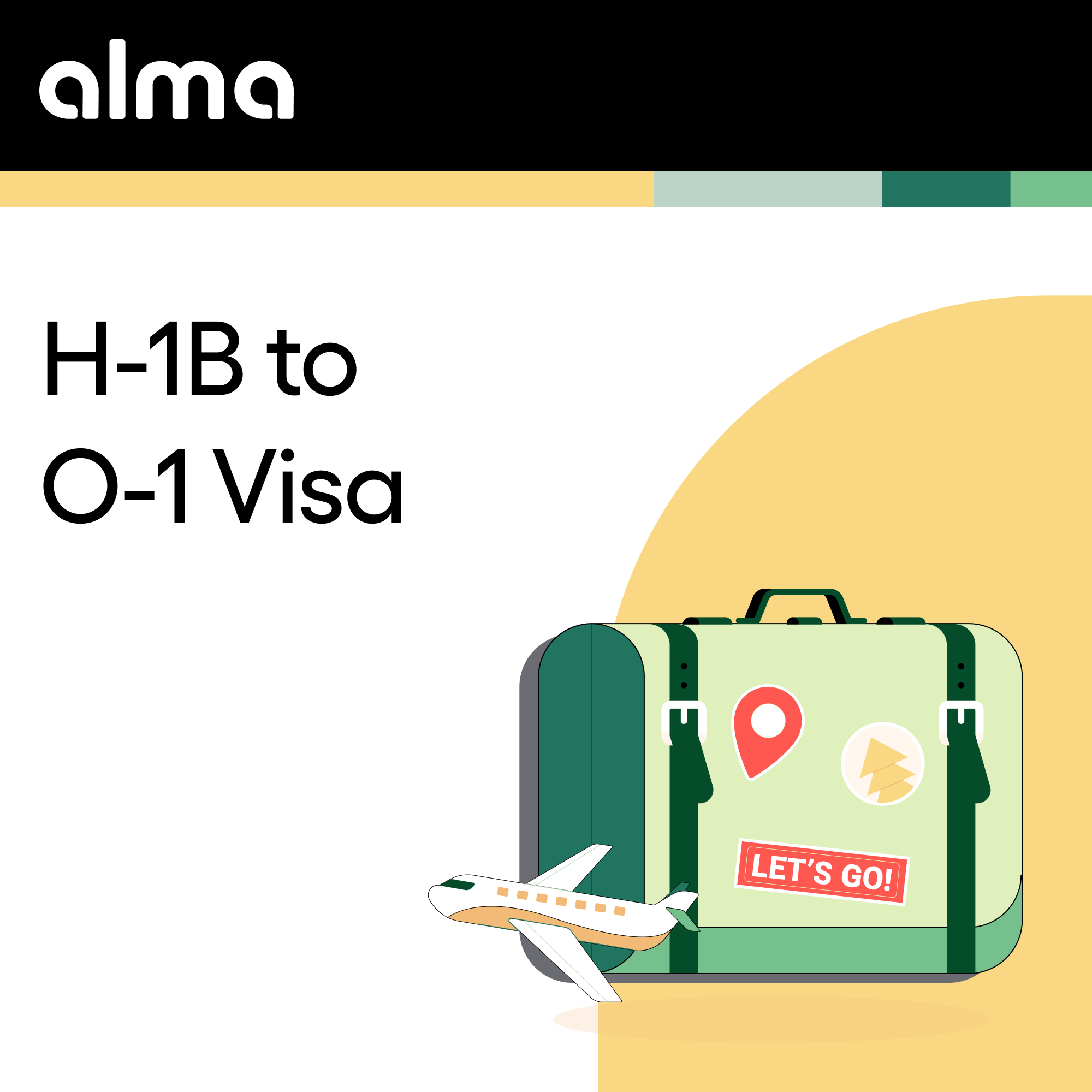- Eric Yuan endured eight consecutive visa rejections over two years before receiving approval in 1997, demonstrating that persistence overcomes systemic immigration barriers
- Approximately 55% of U.S.-based unicorn companies have at least one immigrant founder, with 44% of individual founders being immigrants, collectively employing hundreds of thousands of workers and generating hundreds of billions in economic value
- Yuan's 14-year pathway—from H-1B visa (1997) to green card to citizenship (2007) to founding Zoom (2011)—occurred before modern alternatives like International Entrepreneur Parole; while the U.S. lacks a dedicated startup visa, founders today can pursue O-1A, EB-1A, EB-2 NIW, L-1A, and E-2 (treaty nationals) categories
- Zoom's pandemic growth from 10 million to 300 million daily meeting participants showcased immigrant-founded infrastructure's critical economic role
- Yuan's net worth exceeded $20 billion in 2020, fluctuating with Zoom's share price, exemplifying immigrant entrepreneurship's wealth-creation potential
- Modern founders can work with experienced immigration counsel to strategically pursue visa pathways with strong documentation, expert legal support, and strategic timing around business milestones
Eric Yuan faced eight visa rejections before finally receiving approval to enter the United States—a two-year struggle that almost prevented the creation of Zoom, a company that reached a market capitalization of approximately $70 billion in August 2020. Born in Shandong Province, China, Yuan's journey from rejected visa applicant to billionaire founder illuminates both the barriers and opportunities within the U.S. immigration system for high-skilled talent. Today's entrepreneurs and founders face similar challenges but have access to multiple visa pathways and expert immigration guidance that can accelerate their American Dream.
Who Is Eric Yuan? From China to Silicon Valley Icon
Eric Yuan was born in 1970 in Tai'an, Shandong Province, China, where he developed an early interest in technology and engineering. He earned a bachelor's degree in applied mathematics with a minor in computer application from Shandong University of Science and Technology, followed by a master's degree in geology engineering from China University of Mining and Technology.
Yuan's pivotal moment came in 1995 when he heard Bill Gates speak at a conference in Japan. Inspired by the possibilities of Silicon Valley, he decided to pursue his career in the United States despite speaking very little English at the time. This decision launched him on a challenging immigration journey that would test his determination for the next two years.
Early Years in China and Education
Before immigrating, Yuan built foundational technical expertise that would prove essential for his H-1B visa application and eventual career trajectory. His advanced degrees in mathematics and engineering positioned him as qualified high-skilled talent—precisely the profile U.S. employers sought during the late 1990s technology boom.
The combination of technical credentials and timing created the conditions for eventual success, though not without significant obstacles first.
Eric Yuan's Immigration Journey: Eight Visa Rejections and Persistence
Yuan's immigration story centers on extraordinary persistence. He applied for a U.S. visa nine times over two years, receiving rejection after rejection before finally securing approval in 1997. Each denial required him to restart the application process, pay new fees, and endure another nerve-wracking embassy interview.
Why Eric Yuan Faced Repeated Denials
The specific reasons for Yuan's eight rejections remain undocumented in public records, reflecting the often opaque nature of visa adjudication during that era.
The Ninth Application: What Changed
Yuan's ninth application succeeded where the previous eight failed. While the exact factors remain unclear, persistence itself likely played a role—repeated applications demonstrate genuine intent and allow applicants to refine their documentation and interview responses based on previous feedback.
Additionally, Yuan had secured a job offer from WebEx Communications, one of the first video conferencing companies, providing the employer sponsorship required for his H-1B specialty occupation visa.
Arriving in the United States in 1997
Yuan finally entered the United States in 1997 as one of WebEx's first 20 employees. He arrived with limited English language skills but strong technical abilities that would prove invaluable to the company's growth. His role focused on software engineering for WebEx's pioneering video collaboration platform.
This initial entry on an H-1B visa began a 14-year journey toward permanent residence and eventually citizenship—prerequisites for the entrepreneurial freedom to found his own company.
From WebEx Engineer to Zoom Founder: Eric Yuan's Entrepreneurial Arc
Building Expertise at WebEx and Cisco
Yuan spent over a decade building deep expertise in video conferencing technology at WebEx. When Cisco acquired WebEx in 2007 for $3.2 billion, Yuan stayed with the combined organization, eventually becoming Corporate Vice President of Engineering. This period allowed him to:
- Master the technical architecture of large-scale video systems
- Understand enterprise customer needs firsthand
- Build relationships with investors and industry leaders
- Secure permanent U.S. residence enabling future entrepreneurship
During this time, Yuan also completed Stanford University's executive program in 2006 and became a U.S. citizen in 2007—exactly ten years after his initial arrival.
The Decision to Leave and Start Zoom
By 2011, Yuan had identified critical gaps in existing video conferencing solutions. Corporate platforms like WebEx prioritized IT administrators over end users, creating clunky experiences that frustrated everyday workers. He proposed a complete rewrite focused on user experience, but Cisco declined.
While citizenship is not required to found a company, having permanent work authorization (e.g., green card) simplifies operating a startup. Many founders use O-1, L-1, or E-2 (treaty nationals) before obtaining permanent residence. In 2011, he left Cisco to establish Zoom Video Communications, bringing approximately 40 engineers from WebEx and Cisco with him.
Zoom's Meteoric Rise and Eric Yuan's Leadership
Zoom launched publicly in 2013 and quickly differentiated itself through:
- Superior video and audio quality
- Intuitive interface requiring no training
- Reliability at scale
- Freemium pricing model enabling viral growth
The company went public in April 2019 with a successful IPO. Then the COVID-19 pandemic transformed Zoom from a growing startup into critical global infrastructure, with daily meeting participants surging from 10 million to over 300 million between December 2019 and April 2020—a 3,000% increase in just four months.
Eric Yuan Net Worth and Recognition as a Self-Made Billionaire
How Zoom's Success Built Eric Yuan's Fortune
Yuan's equity ownership in Zoom created extraordinary wealth as the company's valuation soared. In 2020, his net worth exceeded $20 billion, fluctuating with Zoom's share price. At its peak, Zoom's market capitalization approached $70 billion.
The company directly employed approximately 2,500 people as of 2020 globally while enabling millions of workers to remain productive during the pandemic through remote collaboration tools.
Net Worth Milestones and Public Recognition
Yuan's success earned recognition from prestigious institutions:
- Time Magazine's 2020 Businessperson of the Year – Acknowledging Zoom's pandemic impact
- Carnegie Corporation's Great Immigrants Award (2020) – Honoring contributions to American society
- Forbes billionaire rankings – Self-made immigrant entrepreneur status
These accolades highlight not just personal wealth but the broader economic value immigrant entrepreneurs create for the United States.
Entrepreneur Visa Options for Founders Like Eric Yuan Today
Yuan's era lacked direct pathways for immigrant entrepreneurs, forcing him to spend over a decade as an employee before founding Zoom. As of November 2025, today's founders have more options. While the U.S. does not have a dedicated "startup visa," founders can use options like O-1A, L-1A, E-2 (for treaty nationals), and International Entrepreneur Parole (IEP) to build companies, each with specific criteria and evidence requirements.
O-1A Visa for Entrepreneurs with National Recognition
The O-1A visa for extraordinary ability enables founders who have achieved national or international recognition in their field to work on their U.S. startup. Key requirements include:
- Evidence of major awards, publications, or media coverage
- Documentation of original contributions to the field
- Letters from industry experts attesting to extraordinary ability
- Leading or critical role in organizations with distinguished reputation
Alma Advantage: Alma's O-1A visa service costs $8,000 for new petitions with a two-week document processing turnaround. Free initial consultation helps founders assess eligibility and build winning cases.
EB-1A and EB-2 NIW for Self-Petitioning Founders
Unlike H-1B visas requiring employer sponsorship, EB-1A and EB-2 NIW enable self-petitioning—critical for entrepreneurs building their own companies:
- EB-1A: For founders with extraordinary ability demonstrated through sustained acclaim
- EB-2 NIW: For those whose work benefits U.S. national interest (startups creating jobs, advancing critical technology)
Both provide direct paths to permanent residence without the multi-year H-1B to green card progression Yuan required.
Alma Advantage: Alma offers EB-1A and EB-2 NIW services at $10,000 each, with discounted $7,000 pricing for founders with approved O-1A visas. This strategic sequencing enables immediate work authorization (O-1A) while pursuing permanent residence.
L-1A for International Startup Expansion
Founders with established companies outside the U.S. can use L-1A intracompany transfer visas to open U.S. offices. Requirements include:
- One year of employment with foreign entity in executive/managerial role
- Qualifying relationship between foreign and U.S. entities
- For new office L-1A, initial approval is one year; the U.S. office must demonstrate it will support an executive/managerial role within one year
This pathway suits founders expanding proven international startups to the U.S. market.
E-2 Treaty Investor for Qualifying Countries
Entrepreneurs from treaty countries can invest substantial capital appropriate to the enterprise (amount assessed relative to the business, with no fixed statutory minimum) in a U.S. business to obtain E-2 status. While not available to Chinese nationals like Yuan (China is not an E-2 treaty country; dual nationals of treaty countries may be eligible), this option serves founders from countries including Canada, Japan, South Korea, and many European nations.
How H-1B and Employment Sponsorship Enabled Eric Yuan's Early Career
WebEx's Role in Sponsoring Eric Yuan
Yuan's immigration success depended entirely on WebEx's willingness to sponsor his H-1B visa in 1997. This specialty occupation visa required:
- Job offer for position requiring bachelor's degree or higher
- Employer filing petition with USCIS demonstrating need for foreign worker's skills
- Payment of prevailing wage for the position and location
- Compliance with H-1B annual cap limitations
WebEx's sponsorship provided Yuan with legal work authorization while beginning his green card process.
H-1B to Green Card: The Typical Pathway
Yuan followed the standard employment-based immigration progression:
- H-1B initial approval: 3-year validity, extendable to 6 years total
- PERM labor certification: Employer proves no qualified U.S. workers available
- I-140 immigrant petition: Establishes qualification for green card category
- Adjustment of status or consular processing: Final step to permanent residence
This process typically requires 5-10 years from initial H-1B to green card approval—time Yuan spent building expertise at WebEx and Cisco.
Challenges and Timelines in the Late 1990s
The late 1990s technology boom created intense competition for H-1B visas. Congress had temporarily raised the H-1B cap to 115,000 for FY1999–2000 and 195,000 for FY2001–2003 (the 20,000 advanced-degree exemption began in FY2006), though processing times were generally faster than today. Yuan benefited from:
- Strong employer sponsorship from growing company
- Advanced technical degrees
- Timing during technology talent shortage
- Persistent pursuit of permanent residence
Alma Advantage: Alma's Business Immigration Platform manages H-1B petitions at $3,500 for cap-subject and cap-exempt filings, with PERM labor certification at $8,000. Real-time dashboards, compliance tracking, and automated reminders ensure companies never miss critical deadlines in the multi-year green card process.
Lessons from Eric Yuan's Immigration Story for Today's Founders
Persistence: Applying Multiple Times if Denied
Yuan's eight rejections before success demonstrate that initial denials don't determine final outcomes. Each application provided learning opportunities to strengthen documentation and interview responses.
Modern founders facing denials should:
- Request detailed denial reasons to address specific deficiencies
- Gather additional supporting evidence
- Consider alternative visa categories if one proves challenging
- Work with experienced immigration attorneys to identify weaknesses
Building a Strong Petition Narrative
Successful visa petitions tell compelling stories connecting the founder's background, achievements, and future plans. Yuan's technical credentials, job offer, and clear career trajectory created a persuasive case despite initial rejections.
Today's founders should document:
- Publications, patents, awards, and media coverage
- Letters from industry leaders and experts
- Evidence of original contributions to their field
- Economic impact projections for their venture
Timing Your Visa Application with Business Milestones
Strategic timing strengthens visa cases. Founders should coordinate applications with:
- Funding announcements (seed, Series A rounds)
- Product launches and user growth milestones
- Awards, accelerator acceptances, or press coverage
- Partnership announcements with established companies
Alma Advantage: Alma's Startup Immigration Plan provides flat-rate per-visa pricing with two-week document turnaround and up to 3 free attorney consultations—enabling founders to time applications strategically around business milestones.
Resources and Next Steps for Immigrant Entrepreneurs Inspired by Eric Yuan
Where to Start: Free Consultations and Assessments
The first step toward your immigration journey requires understanding your current position and available pathways. Key actions include:
- Schedule free consultations with immigration attorneys specializing in entrepreneurs
- Assess your credentials against O-1A, EB-1A, and EB-2 NIW criteria
- Gather documentation of achievements, publications, awards, and recognition
- Identify gaps in your profile and timeline to address them
Accelerator and Investor Immigration Benefits
Many accelerators and venture capital firms connect founders to immigration legal resources. Approximately 55% of U.S.-based unicorns have at least one immigrant founder, with India contributing 90 founders, Israel 52, and Canada 42. Investors increasingly recognize immigration stability as critical to startup success.
Working with Experienced Immigration Counsel
Yuan's eight rejections highlight the value of expert guidance in navigating complex immigration systems. When selecting immigration counsel, prioritize:
- Specialization in entrepreneur and startup visas
- Track record with O-1A, EB-1A, EB-2 NIW cases
- Transparent fee structures and timelines
- Technology platforms for case tracking and communication
- Responsive attorney access for strategic questions
Alma Advantage: Alma's Startup Immigration Plan combines expert legal counsel with technology-enabled efficiency. Streamlined support for 1-25 foreign nationals includes flat-rate pricing, two-week document turnaround, and up to 3 attorney consultations per case—providing comprehensive support from initial consultation through approval.
Eric Yuan's journey from eight visa rejections to a net worth exceeding $20 billion proves that persistence, strategic planning, and expert guidance transform immigration challenges into American success stories. With approximately 55% of billion-dollar startups having at least one immigrant founder, today's entrepreneurs have clearer pathways and stronger support systems than ever before.
Frequently Asked Questions
Eric Yuan's visa application was rejected eight consecutive times over a two-year period before he finally received approval on his ninth attempt in 1997. Each rejection required him to restart the application process, pay new fees, and undergo another embassy interview. His persistence ultimately paid off when WebEx's employer sponsorship for an H-1B specialty occupation visa enabled his entry to the United States, where he joined the company as one of its first 20 employees.
Eric Yuan initially entered the United States in 1997 on an H-1B specialty occupation visa sponsored by WebEx Communications, where he worked as a software engineer. The H-1B required a job offer for a position requiring a bachelor's degree or higher, which Yuan's advanced degrees in applied mathematics and geology engineering satisfied. He later transitioned from H-1B to permanent residence through employment-based green card sponsorship, and became a U.S. citizen in 2007—exactly ten years after his arrival. This pathway from H-1B to green card to citizenship was typical for high-skilled workers in the late 1990s and early 2000s, though it required 5-10 years of continuous employment with sponsoring employers.
As of November 2025, immigrant entrepreneurs have several visa pathways depending on their credentials and circumstances. The O-1A visa for extraordinary ability enables founders with national recognition to work on their U.S. startups—Alma offers this service at $8,000 with two-week processing. The EB-1A and EB-2 NIW provide direct paths to permanent residence for self-petitioning founders (Alma: $10,000 each, or $7,000 with approved O-1A). The L-1A intracompany transfer visa suits founders expanding established international companies to the U.S., and the E-2 treaty investor visa serves entrepreneurs from qualifying countries who invest substantial capital in U.S. businesses. The U.S. also offers International Entrepreneur Parole for qualified startup founders.
O-1A visa processing typically takes 2-6 months from petition filing to approval, with premium processing available for 15-day adjudication at an additional $2,805 USCIS fee (as of 2024). EB-1A green card processing ranges from 12-24 months depending on country of birth and USCIS workload. Alma's two-week document preparation turnaround ensures founders can file petitions quickly once they've decided to proceed. Founders with comprehensive evidence of extraordinary ability—publications, patents, awards, media coverage, expert letters—typically experience smoother processing.
Yes, founders can self-petition for permanent residence through EB-1A (extraordinary ability) or EB-2 NIW (national interest waiver) categories, unlike traditional employment-based green cards requiring employer sponsorship. EB-1A requires demonstrating sustained national or international acclaim through evidence like major awards, original contributions to the field, authorship of publications, or leading roles in distinguished organizations. EB-2 NIW requires advanced degrees or exceptional ability plus demonstrating that the founder's work benefits U.S. national interest—startups creating jobs, advancing critical technologies, or addressing important challenges often qualify. Alma's EB-1A and EB-2 NIW services ($10,000 each) include comprehensive petition preparation, evidence strategy, and expert legal guidance.
.png)


.png)
.png)



